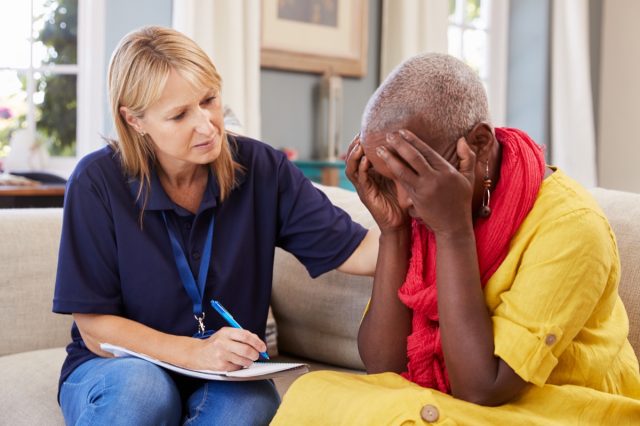Early diagnosis of dementia can lead to better treatment, doctors say—so it’s important to know the signs when you see them. “It is estimated that worldwide there are more than 55 million people living with Alzheimer’s disease and other causes of dementia, and this number is estimated to rise to 78 million by 2030 and 139 million by 2050,” says Andrew E. Budson, MD. “There are simply not enough neurologists, psychiatrists, geriatricians, neuropsychologists, and other specialists to diagnose these individuals with cognitive decline and dementia. Primary care providers will need to take the lead.” Here are the most common signs of dementia to be aware of, according to doctors. Read on—and to ensure your health and the health of others, don’t miss these Sure Signs You’ve Already Had COVID.


While some forms of memory loss—for example, forgetting where you left your keys—is nothing to be alarmed about, dramatic changes in memory can be a sign of dementia. “It’s important for me when I’m trying to understand the person I’m seeing in the clinic to find out where they are coming from,” says Samantha Holden, MD. “What is their baseline? Has there been a change or decline in their thinking and memory? Not that there has always been a deficit – like a learning disability – but that a person was previously doing well and now they’re not.”
RELATED: Sure Signs You’re Getting Dementia, According to Science


Confusion is one of the earliest signs of dementia, and may not be apparent right away. “Confusion is a common problem in persons over 65 years of age,” according to a medical research article published in American Family Physician. “The decline in normal cognitive ability may be acute, or it may be chronic and progressive. In older persons, confusion is most likely to be a symptom of delirium or dementia, although it can also be associated with psychoses and affective disorders, specifically major depression.”
RELATED: Bruce Willis ‘Is Stepping Away’ From Acting After Aphasia Diagnosis


Sleep disturbance is closely linked to dementia, with some people experiencing symptoms years before a diagnosis. “We can diagnose the sleep disorder with a sleep study. And there’s a high chance that a person with this disorder will develop LBD (Lewy Body Dementia) or Parkinson’s disease,” says neurologist James Leverenz, MD. “Often when someone comes in for an evaluation, and we ask about sleep disturbances, the bed partner says, ‘Oh, they’ve been doing that for years.'”
RELATED: What an Unhealthy Gut Feels Like, According to Experts


Dementia may cause people to see things that aren’t there, doctors warn. “It becomes problematic when people start believing their visual hallucinations are true,” says Dr. Leverenz. “If they call the police or can’t fall asleep because they’re scared, we may need to manage this symptom.”
RELATED: Here’s the Truth About the Virus Now, Says Former Surgeon General


Losing the ability to understand a joke could be an early symptom of dementia. “If you find your sense of humor has changed significantly, it might be worth getting some medical advice,” says Katie Puckering, information services manager for Alzheimer’s Research UK.
RELATED: Doing This After Age 60 is “Unhealthy,” Say Physicians